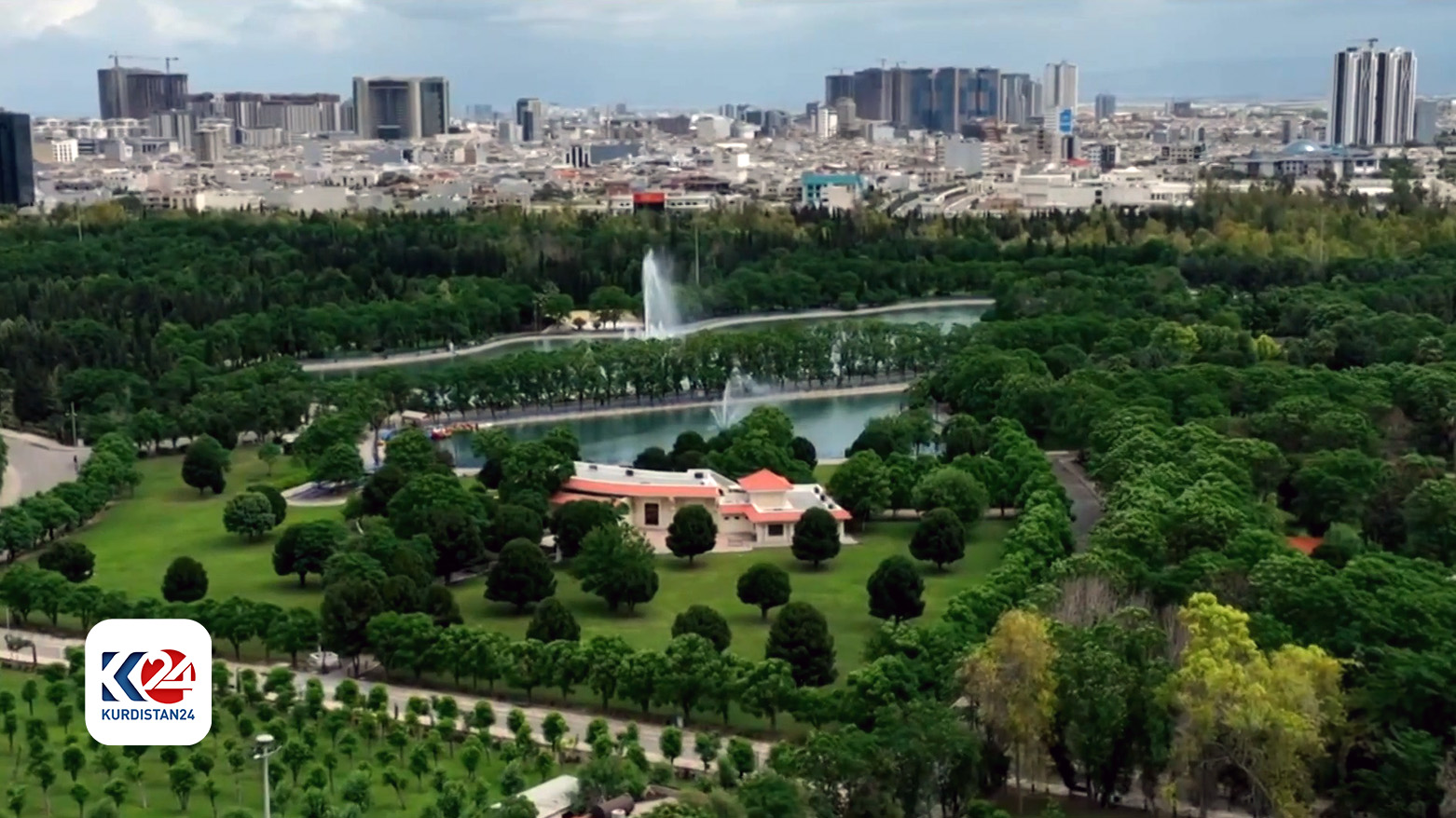Erbil expands urban green spaces to combat climate change
In response to climate change, the KRG continues its campaign to increase urban green spaces, aiming to meet urban green space standards in cities and towns across the region.

ERBIL (Kurdistan 24) – In a significant environmental initiative, the Kurdistan Region of Iraq (KRG) is enhancing urban green spaces, with plans to plant 1,200 flowers along Erbil's 60-meter street.
Sami Abdulrahman Park, covering 800 acres, has been dubbed Erbil's "oxygen production warehouse," boasting hundreds of thousands of trees that enhance the city's aesthetic and environmental quality.
Over the past four years, the urban green space in Erbil has increased from 17% to 20%, a growth attributed to focused governmental efforts.
Environmental expert Aso Shikak emphasized the importance of this initiative, stating, "Climate change raises temperatures. To counter its effects, the ninth cabinet of the Kurdistan Regional Government (KRG) is working to expand urban green spaces in Erbil and other cities through the Ministry of Municipalities and Tourism."
In its latest endeavor, the KRG has begun constructing a park covering 18,000 square meters in the Jîyan neighborhood, with an allocated budget of 1 billion and 46 million dinars. This project is part of a broader effort to create a stable and healthy environment.
Sardar Mohammed, an environmental activist, urged residents to support these initiatives by planting trees and maintaining green spaces.
"The citizens of the Kurdistan Region should cooperate with the government and increase their environmental awareness. It is important for everyone to plant trees in front of their houses and take care of them," he said.
In response to climate change, the KRG continues its campaign to increase urban green spaces, aiming to meet urban green space standards in cities and towns across the region.
This ongoing effort underscores the critical role of greenery in mitigating climate impacts and improving the quality of life.
Additional reporting by Kurdistan24's correspondent Shayma Bayiz